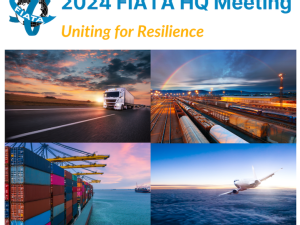New report warns ‘new retailing’ poses threat to contract logistics
posted by AJOT | Jul 07 2014 at 11:01 AM | Logistics
According to Transport Intelligence’s latest report, Global Contract Logistics 2014, sluggish growth in the sector conceals fundamental demand-side changes which threaten the industry.
According to Transport Intelligence’s latest report, Global Contract Logistics 2014, the global contract logistics market grew by 2.8% in 2013, down from 3.4% the previous year. This reflected the ongoing sluggish recovery in the global economy, not least in the Eurozone and the lower than expected growth in the US. From 2013 to 2017, a compound annual growth rate (CAGR) of 6.0% is forecast for the contract logistics sector. Unsurprisingly, regions which are home to a large number of emerging markets have the highest growth rates, with a CAGR of 8.9% predicted for both Africa and Asia Pacific.
However according to the report’s author, Thomas Cullen, the sluggish growth conceals systemic changes which are occurring in the industry. ‘The market for contract logistics in the developed world is undergoing its most fundamental transformation since the 1980s as retailing is transformed by e-commerce,’ he commented. ‘In addition, the market for ‘advanced logistics services’ is also expanding as emerging countries move from traditional local markets to modern retailing. The combination of these two forces promises huge potential for contract logistics providers but also substantial threats.’
The logistics demands of ‘home-delivery’ are immense and quite different from traditional retailing yet many retailers have been left straddling the two in what is described as an ‘omni-channel’ strategy. The result is that spending on logistics in the retail sector is growing rapidly and retailers are in the undesirable situation of ‘throwing money’ at logistics solutions driven by a fear of losing market-share.
At the same time, emerging markets have seen a shopping explosion over the past few years as increased GDP-per head has combined with local and global stores developing modern retailing in countries that were often reliant on traditional markets. Today, economies such as Turkey, Indonesia, Thailand and Brazil have a demand for advanced logistics services which is growing at an extraordinary rate. Yet serving that demand is not straightforward. Such economies are frequently characterized by poor infrastructure and opaque business practices that make market entry difficult.
Cullen concluded, ‘The implications of ‘New Retailing’ for the contract logistics sector are not straightforward. Whilst logistics spend is growing, the companies that are benefitting are often specialist providers of fulfilment services or last mile capabilities, rather than the traditional purveyors of ‘trucks and sheds’. It is also clear that many of the larger retailers are investing in in-house capabilities rather than outsourcing.’









